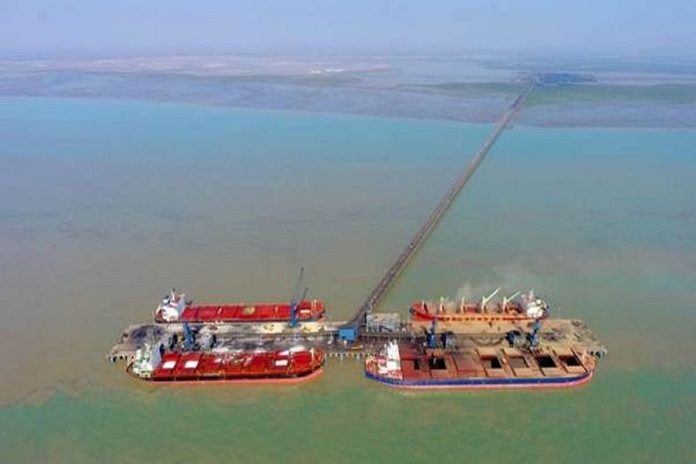The central government has firmed up plans for a crucial project for construction of a mega-container terminal at Tuna-Tekra near Kandla, in Gujarat.
The project aims to cater to future trade demand from northern, western and central India, connecting the regions to global markets.
Estimated to cost Rs 4,243.64 crore, the project will be executed through the public-private-partnership (PPP) mode.
The project aligns with the ‘Vision 2047’ of the government of India to quadruple port handling capacity and develop multimodal logistics infrastructure, to promote economic growth.
The container terminal will be fully compliant with the green port guidelines, ensuring sustainability in port operations by adopting best practices of port environment management, contributing towards the long-term sustainability goals set out by the government of India.
The Ministry of Ports, Shipping and Waterways is committed towards developing the best infrastructure at ports for increasing the economic growth of the country.
Deendayal Port Authority, a leading major port on the west coast of India in Gujarat, is signing a concession agreement for the development, operation and maintenance of the new mega container terminal at Tuna-Tekra, Gujarat (near Kandla) with DP World, a multinational logistics company based in Dubai, United Arab Emirates.
The concession agreement will be signed on 25 August 2023, in the presence of Union Minister of Ports, Shipping and Waterways, Sarbananda Sonowal, Sultan Ahmed Bin Sulayem, group chairman and CEO of DP World and other dignitaries.
Once complete, the terminal will have annual capacity to handle 2.19 million container units (TEUs) with capability to handle next-generation vessels carrying more than 18,000 TEUs.
The 30-year PPP project agreement with a special purpose vehicle of Hindustan Infralog Private Limited (a joint venture of DP World and National Investment and Infrastructure Fund), is on build-operate-transfer basis, extendable upto 50 years.
The project is expected to add operational efficiency in terms of reduced congestion at Kandla creek, enhanced ability to handle mega container vessels, significant reduction in turn-around time and many other advantages for the creation of efficient and resilient supply chains in the country.
Equipped with multimodal connectivity through a wide network of roads, rail and highways, the terminal will provide a gateway between hinterland and the global markets.
The project is part of the national infrastructure pipeline and will complement initiatives of the government of India, such as the PM Gati Shakti Master Plan and National Logistics Policy.


